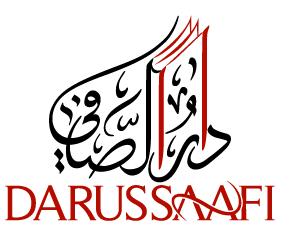Question: this question is near to the previous question regarding what has spread and is called nowadays as air miles. Do the points which are obtained through the path of air miles in exchange for purchases using the credit card enter into the prohibition? Answer: “This is similar to what we have mentioned. These air miles are not financial benefit. If…
Category: Fatawa
The Habashi Sect – Shaikh Salih al-Fawzaan
Question: May Allah be good to you, O possessor of virtue, the questioner says: What is your opinion about the Habashi sect, the followers of Abdullah al-Habashi al-Harari? Answer: “Books have been written on it and their mathhab has been clarified [in both] long and summarized works. A small treatise was issued from the Permanent Committee or a clarification, which is…
The Ruling on Using a Female Name in a Kunya – Shaikh Abdul-Muhsin al-‘Abbaad
Question: Is there in the Hadith of Abu Ruqayyah (may Allah be pleased with him): “The Religion is sincere advice” evidence against the one who detests taking a Kunya using a female name? Answer: “It is well-known that the Kunya is only based on the eldest child as comes in the Hadith of Abu Shuraih (may Allah be pleased with…
Refutation on the Ahbaash (الأحباش) – Shaikh Muqbil bin Haadi al-Wad’iee
Question: There is a man who is Habashi in origin and is called Abdullah al-Habashi. He says that whoever claims Allah is above the servants, then he is a disbeliever. This Aqeedah has spread among the people [despite] knowing that he is a Sufi. Answer: “The man is misguided. If he is the person in Lebanon, then Shaikh al-Albani (may…
Does a Person Have to Praise Allah, Extol Him, and Send Blessings Upon the Prophet (ﷺ) in Every Supplication? – Shaikh Abdul-Aziz ar-Raajihi
Question: Does a person begin with praise of Allah, extolling Him, and sending blessing upon the Prophet (ﷺ) in every supplication even in the supplications of the prostration, at the end of the prayer, and the remembrances of the day? Answer: “No. That is present in the prayer and it is only one thing [saying]: {الْحَمْدُ لِلَّهِ رَبِّ الْعَالَمِينَ} In the…
Who are the Ahbaash (الأحباش )? – Shaikh Al-Albani
Question: Oh our Shaikh, who are the Ahbaash (الأحباش)? Answer: “They are the followers of Abdullah al-Habashi. This is what I just said. This man is from the Mu’attilah (those who deny the Attributes of Allah) and from those who declare the Imams of the of Salaf, like Ibn Taymiyyah and Ibn Qayyim al-Jawziyyah and other than him, as disbelievers. These…
What is the difference between the ‘Ashaa’irah (الأشاعرة) and the Maturidiyyah (ماتريدية)? – Shaikh Muhammad Amaan al-Jaami
Question: The questioner asks: what is the difference between the ‘Ashaa’irah (الأشاعرة) and the Maturidiyyah (ماتريدية)? Answer: “There is no difference between the ‘Ashaa’irah (الأشاعرة) and the Maturidiyyah (ماتريدية) except for a formal difference in a core issue. Otherwise there mathhab is one. It is the obligation of interpreting the Sifaat al-Khabariyyah and the Sifaat al-Fi’liyyah. Otherwise, they differ in some issues…
What Books are Advised to Be Read in Aqeedah, Tafseer, Sciences of Hadith, and Fiqh? – Shaikh Muhammad Amaan al-Jaami
Question: What are the books which you advise to read in Aqeedah, Tafseer, Hadith and its science, and Fiqh? Answer: “In the beginning of [this] letter, I advise the one who wants to began seeking knowledge to memorize: The Three Fundamental Principles and their Proofs, The Pillars of Salah and the Obligations of the Prayer and its Conditions which is…
Is There a Difference Between One who is an Innovator in the Methodology and One who is an Innovator in the Affairs of Worship? – Shaikh Yahya bin Ali al-Hajuri
Question: Is there is a difference between an innovator in the methodology and the innovator in the affairs of worship? Answer: “An innovator is an innovator and not everyone who falls into innovation is an innovator. He can be someone who erred. However, whoever intended and was deliberate in opposing the truth, then he is an innovator” [at-Thawaabit ul-Manhajiyyah pg.…
The Ruling on Shaving the Hairs that Grow Below the Lower Lip and Above the Chin – Shaikh Hasan Ba Shu’aib
Question: Is it allowed to shave the (العنفقة) hair which are above the chin? Answer: “The (العنفقة) [the hair between the lower lip and the chin] were reported in the Hadith of Abdullah bin Busr (may Allah be pleased with him). [He was asked]: أَرَأَيْتَ النَّبِيَّ صلى الله عليه وسلم كَانَ شَيْخًا قَالَ كَانَ فِي عَنْفَقَتِهِ شَعَرَاتٌ بِيضٌ “Did you…
